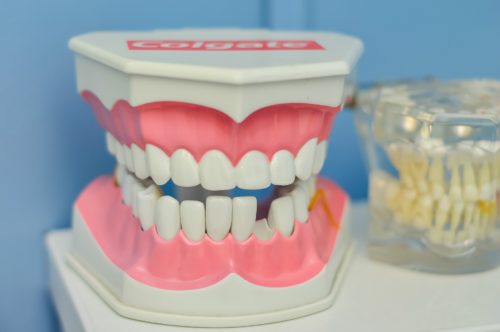
When a person is missing one or more teeth, their dentist may recommend they get a dental bridge installed to fill the gaps. There are several benefits to having a dental bridge installed, including fixing the aesthetic appearance of an individual’s smile. There are several different types of dental bridges a dentist may use to fill the space of a missing tooth. If you have one or more missing teeth, contact one of our skilled and knowledgeable general dentistry, dentists located in Basking Ridge & Morristown, NJ. Please don’t hesitate to schedule a visit with one of our trusted team members who can successfully replace a missing tooth with a dental bridge.
What is a dental bridge?
When an individual loses one or more of their teeth due to a congenital condition, gum disease, tooth decay, or injury, they will typically need to have a dental bridge installed. Essentially, a dental bridge is a false tooth that fills the space of a missing tooth. Dental bridges are extremely beneficial for preventing teeth from shifting as well as fixing an individual’s smile. There are several benefits to having a dental bridge installed to fill tooth gaps.
What are the different types of dental bridges?
The four most common types of dental bridges include:
- Traditional fixed bridge. This is the most commonly used type of dental bridge. However, to put a dental bridge to replace a missing tooth, the individual must have two healthy teeth on either side of the missing one. Dentists will place two crowns on those healthy teeth to anchor and support the dental implant.
- Cantilever bridge. This type of dental bridge is commonly used when an individual is missing their front teeth. This is a fixed restoration where the dental crown is anchored on one side.
- Maryland bridge. This type of dental bridge is also known as resin-bonded. This is another dental bridge that is recommended when filling front teeth gaps. Maryland bridges use metal bands to bind a false tooth to the back of an individual’s natural tooth.
- Implant-supported bridges. Typically, this type of dental bridge is installed when an individual has more than one tooth missing. Implant-supported bridges are not supported by natural teeth, instead, they are supported by dental implants. Essentially, this type of bridge uses sections to bind an abutment tooth to fill gaps.
Are there any risks?
Individuals do not need to worry when it comes to dental bridges as long as they properly take care of them. Dental bridges are meant to last several years. However, the surrounding teeth that anchor a dental bridge could have teeth decay, or the cement could deteriorate over time.
If you or someone you love has a missing tooth, get in touch with an experienced general dentistry dentist located in Basking Ridge & Morristown, NJ. Our team is dedicated to helping our patients maintain their overall oral health.






